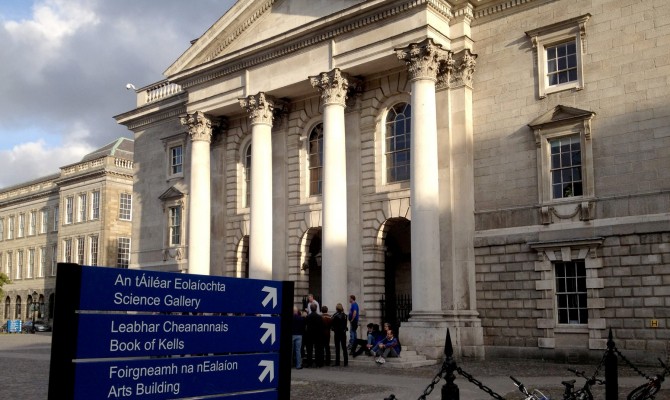The prospect of an industrial dispute taking place between College and the non-academic trade unions in Trinity has increased, with decisions taken by the two major unions to ballot members for industrial action, in the case of SIPTU, or to ballot pending a further committee meeting, as in the case of Unite.
Members of both unions have been in dispute with College management in recent months over changes to hiring and promotion policies. Last Tuesday, February 14, a section meeting of SIPTU in Trinity saw the presentation of a document from College to union members, outlining proposed concessions and changes in areas identified as problematic by the union.
Dr. Kieran ‘Jack’ McGinley, head of SIPTU in Trinity, said that the meeting saw the decision being formally taken to consult the membership in relation to the dispute. The section agreed to seek clarification on certain matters contained in College’s document. While there have been changes in relation to policy on promotions, Dr. McGinley said “there was disappointment in relation the fact that there was no suggested fix for the fact that permanent contracts are not being issued to staff,” and that more progress was sought, “specifically that a process be put in place that is regarded as fair and equitable, as far as people are concerned”. Dr. McGinley also noted disappointment with the perceived lack of progress among union members in relation to the non-filling of vacancies.
Karl Byrne, national education sector organiser for SIPTU, told Trinity News that representatives “were frustrated at the lack of any tangible progress in relation to two issues” – permanent contracts and the non-replacement of permanent staff. “It is our committee view that these fixed-term contracts are a means to avoid members getting permanent and pensionable jobs on proper contracts of employment.” Byrne confirmed that the coming weeks will see a ballot for industrial action, “should the university not meaningfully engage with us to find a resolution,” though the union remains available for talks.
Meanwhile, the other main non-academic union in Trinity, Unite, is also close to a decision to ballot for industrial action, according to Cierán Perry, a shop steward. “We’re in the same boat,” he said. According to Perry, a recent members meeting “mandated us to inform the college that we’re in dispute,” and further mandated the union to ballot based on College’s official response – the same response as was presented to SIPTU’s meeting – if it was deemed necessary.
A meeting of the Unite committee is to take place on Tuesday 21 February.“I’ll be arguing that this proposal is unacceptable,” said Perry. “We don’t need the membership to OK the ballot, we just need the committee to decide.”
In a statement on the matter to Trinity News, a College spokesperson that the university is “committed to continued local engagement with union representatives on the issues raised”. If issues remain unresolved then “the university is amenable to discussions externally under the auspice of the Workplace Relations Commission, as provided for in Trinity’s agreements with every trade union”.
A statement from SIPTU’s head office on the matter was not forthcoming at the time of going to print, though officials who spoke to Trinity News were aware of the developing situation.
The matter of Trinity’s industrial relations has been raised in the Dáil on a number of occasions recently with TDs Tommy Broughan, Clare Daly, and Paul Murphy receiving written answers on the issue from Richard Bruton, Minister for Education and Skills. Bruton told these TDs that “third-level institutions have autonomy in relation to human resource policies, subject to compliance with government policy,” and that his department was unaware of any instances of Trinity “not operating in accordance with good practice in relation to work and contract conditions”. He encouraged any union with concerns to address them under the dispute resolution frameworks outlined in the Haddington Road Agreement.
It has been a number of years since industrial relations in Trinity have flared up to the extent that is now threatened. In May 1996, a multi-day strike by SIPTU members left the university closed to members of the public in a dispute over pension entitlements. The strike disrupted a number of events during Trinity Week, with the annual dinner in honour of new Scholars having to be moved to a Dublin hotel.







